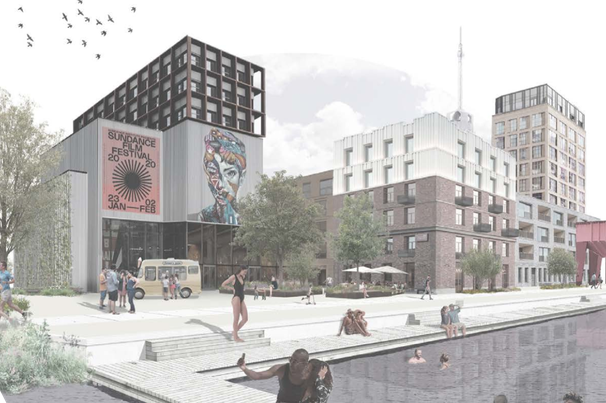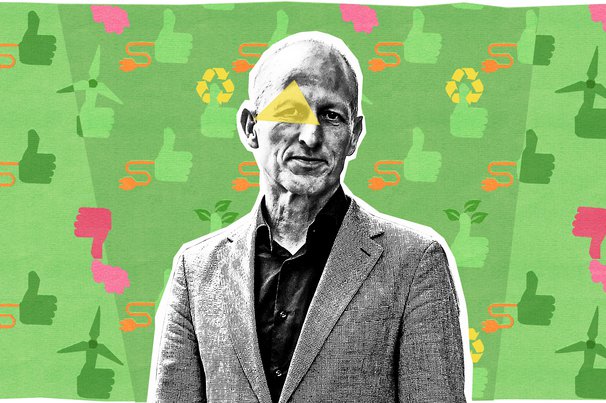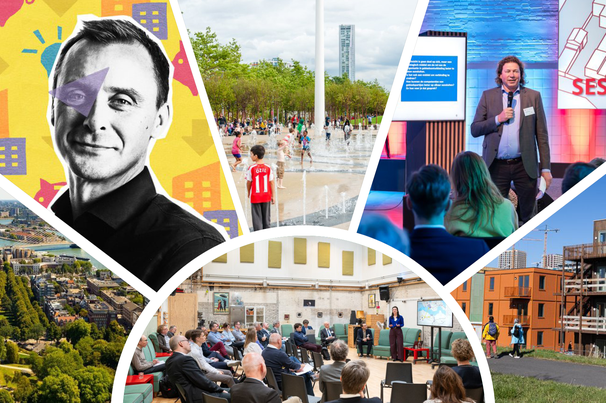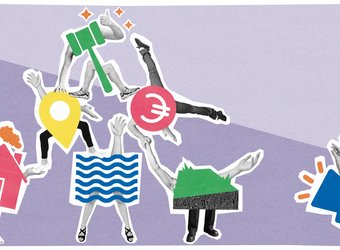3 februari 2018
5 minuten
Nieuws De Inclusive City Hub is een interdisciplinair lab waarin de universiteiten van Delft, Leiden en Rotterdam zich richten op de metropoolregio Rotterdam - Den Haag. De Inclusive City Hub ziet de ecologisch en sociaal inclusieve stad als de voedingsbodem voor een gelukkig leven. In dit lab worden verschillende thema's onderzocht in 3 case studies; het Central Innovation District in Den Haag, de binnenstad van Rotterdam en het Midden-Delfland. Het kick-off evenement vindt op 14 februari plaats in Rotterdam. Dit artikel is alleen in het Engels beschikbaar.
Delft design lab: Inclusive City
How can contemporary technologies and insights be integrated in an inclusive way, that lets local people collaborate and benefit? How can people be the fuel of innovation? Profound research is needed to revalue cities as places full of collaborative spaces that can provide in energy, food, materials and thus be an integrated part of the circular economy. Also the direct landscape surrounding us has great potential in provisioning sustainable resources as well as enriching the lives of urban inhabitants.
In 3 case studies the Inclusive City Hub focuses on different topics:
Circular mindsets - Placemaking & Involvement
The shift to a circular economy and sustainable society asks for a transition in cities. Instead of a place for consuming, the city of the future is a resilient system, embedded in its environment, in which loops are closed and waste equals food. This challenge is the perfect opportunity for innovation. Can we use roofs to produce food or grow natural materials? Can waste stations in the city become new public spaces? Can we design infrastructure that connects both people and nature and increases biodiversity?
In the Inclusive City Hub we look for fresh ideas that connect this (technical) ambition to the inhabitants of the city. How can we develop these innovations in an inclusive way, starting from the energy of individuals and making use of existing local initiatives? How do we use this transition to connect people?
Case study: CID The Hague
The Central Innovation District (CID) in Den Haag is the area between the three most important train stations; Den Haag Central, Laan van NOI and Holland Spoor. Because this area is easy to reach, it is a great place for businesses to settle. At the moment, however, both the building stock and general spatial organization is outdated – large empty buildings and outworn social housing form a problem and the public space is of varying quality. This is a problem as well as an opportunity to now redevelop more sustainably. The mission of the CID is to do this in a completely circular way.
Read more about the Central Innovation District (CID) in Den Haag in this article.
Empowering commons - Conversations for action
Throughout history there have been many examples of a successful collective use of spaces and resources. Shared pieces of land, commons, had to be used in a balanced way to not become depleted, requiring specific spatial and social circumstances.
We are searching for fresh ideas on how to use this principle in the cities of today. How do we organize neighborhood collectives around energy, the reuse of water or the collection of recyclable materials? How can we make a viable connection between the initiatives of enthusiastic individuals and the directions the municipality wants to go? Can we collectively make a city happier and healthier? The question for an inclusive city calls for an integral approach encompassing research, policy recommendations and thoughtful urban design.
Case study: Rotterdam city centre
In cities the division between private and public space tends to be sharp; an increasing number of people lives alone while crowded public spaces are not always ‘social’. When too open, a city can evoke feelings of anonymity and indifference. In the inner city of Rotterdam lie many opportunities for the shared use of spaces that are now too broad and empty to use or not yet possible to reach. These can be smartly occupied and thus become key in organizing contemporary urban collectives, bringing people together in sharing and protecting values.
Farm cooperatives - Connecting city and landscape
Cities can only be sustainable when smartly connected to their hinterland - not only do rural areas provide for local food and energy supply, they also gives city inhabitants a place to unwind, energize and get fresh air. Farms play an large role in this first aspect, and nowadays increasingly become a place for recreation.
In farming we see the latest technologies, concerning sustainable sources of energy, residual heat, bio-waste or growing new types of crops. How can the integration of these contribute to the landscape and its connection to the city? How do we stimulate organic cultivation that respects or even reinforces the ecology of the area? Can we integrate this with recreational purposes, such as sports, biking and water routes? How does farming of the future create an inclusive landscape?
Case study: Midden-Delfland
The ‘Central Park’ of the Metropole Region is Midden-Delfland, a relatively large peatland area dotted with villages that is centered in between the bigger cities. The pressure on the landscape is high, as it is threatened by urban sprawl, cluttering, intensive livestock and infrastructure. This results in a broad range of challenges, all revolving around the relationship between a city and its hinterland. The smart integration of innovative technologies is needed to connect Midden-Delfland to the circular economy.
The Inclusive City Hub is focused on all connections between society, environment and economy that are undeniably relevant in the transition towards a circular economy.
Contact the Inclusive City Hub at info@inclusivecity.nl.
More information can be found on: www.inclusivecity.nl and www.centre-for-sustainability.nl.
Coverfoto: Overzicht van de Lijnbaanflats in Rotterdam met omgeving, gezien vanaf de parkeerplaats Bijenkorf (opmerking: Gefotografeerd voor Monumenten van Herrezen Nederland, bladzijde 23) Bron: Rijksdienst voor het Cultureel Erfgoed.
Are you a student about to start your graduation project and do you want to connect with challenges in practice? Enrich your project and join the hub!
- Take part in an interdisciplinary studio that faces complex challenges from multiple perspectives
- Meet monthly with professionals from practice
- Contact researchers and academics from three universities
- Get inspired or speak up and share your own insights at our quarterly events
- Get all-time access to the Groot Handelsgebouw in Rotterdam to meet and work
Cover: ‘c’




